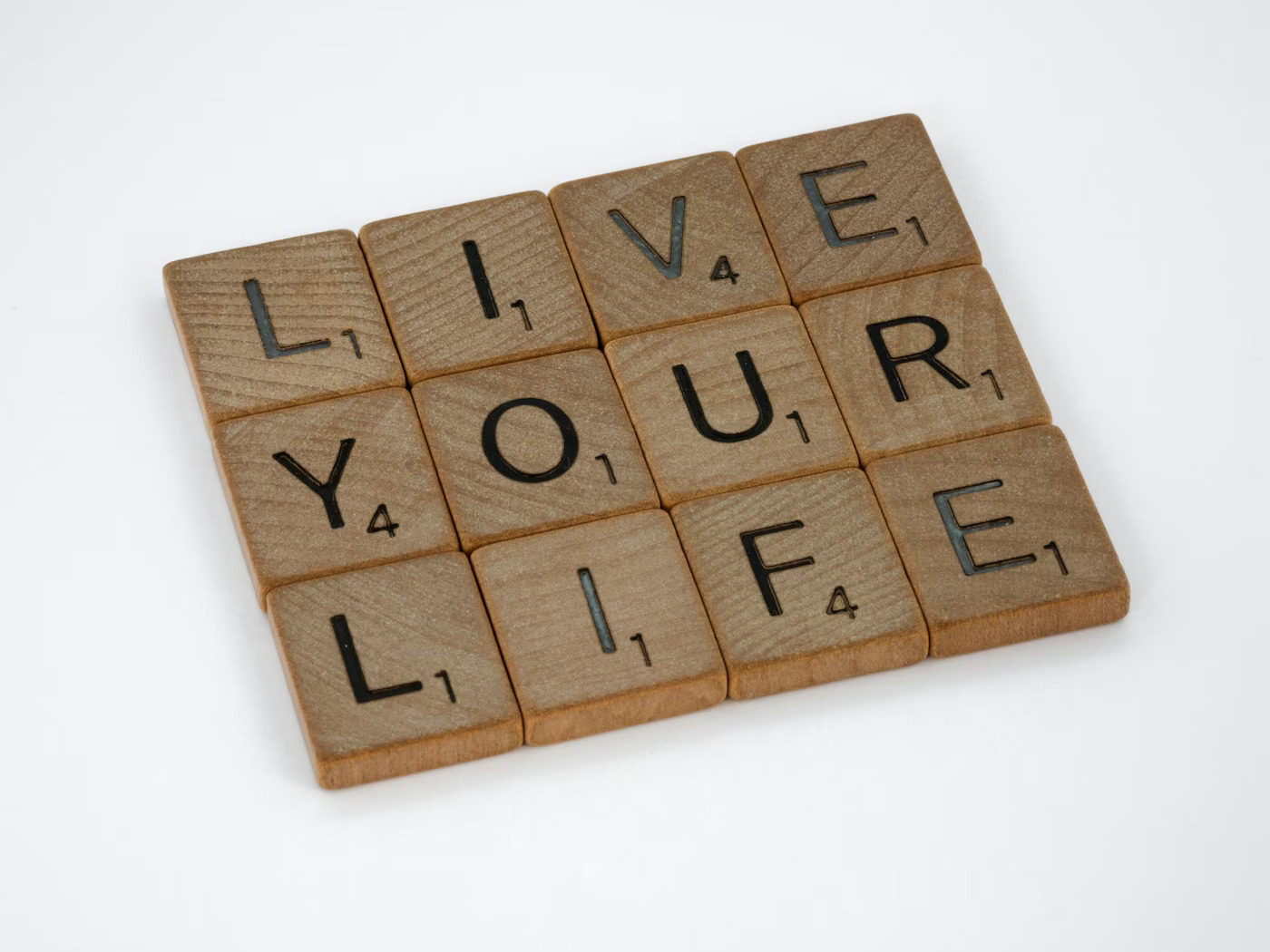Living in the Present Moment
Overview
If we analyze the moments we are unhappy, we find that mostly we are either thinking about the past.
Someone asked Thich Nhat Hanh, a spiritual guru, “How do I stay in the present moment when it feels unbearable.” He said, “even if the present moment is unbearable, to go back to that moment is the only chance for us to do something in order to calm it down and to transform it.”
How do I stay in the present moment when it feels unbearable?
Another analogy would be, “if your house is on fire, extinguishing the fire would be like living in the present, and ignoring the fire would be like an escape from the present. We can apply the same logic to our minds as well. If we do not live in the present, we will multiply the problems.
If you do not know how to extinguish the fire, like a toddler, being connected to it would be dangerous. But as an adult, if you can extinguish it, that is what you should do. When it comes to our emotions, staying equanimous and non-reacting emotionally is like extinguishing the fire of our emotions, and reacting emotionally would be like inflaming it.
If we analyze the moments we are unhappy, we find that mostly we are either thinking about the past or the future.
We find that we can cut out a lot of suffering from our lives if we start living fully in the present. We carry a narrative or a story of our lives in our minds as it satisfies us at some level, but it is also a source of constant unhappiness for us. Remembering the past invariably creates a sense of loss and regret, and thoughts about our future can create illusions.
Very occasionally we find that the present moment is unbearable, and we want to escape from it, especially when we are suffering from acute symptoms of an illness or in the middle of a crisis. Even there, a lot of the suffering is about what has just happened and what may happen if things get worse, and not the actual quantum of suffering that we are facing at the moment.
The next logical question is, what is the timescale for the “president moment?” If I am thinking about what happened a couple of minutes ago, am I living in the past? And if I am planning something for the future, is it not living in the present?
At a subtle level and when you are deep in meditation, even thinking about what happened a minute ago would be living in the past, and thinking about what may happen in the next minute or two would also be living in the future. However, at a gross level, even a day or two can be understood as living in the present moment.
The next important question is, how to know if I am living in the present or in the future? We can live in the future or in the past only in the form of thoughts and not perception, external or internal (interoception). There are two types of thoughts; the ones that happen to us and the others that we create consciously. To live in the present, we must enlarge our focus from our thoughts to our perception and from our consciously-created thought to our automatic thoughts. We are like a person sitting on the banks of a river and simply watching the stream of water flowing in front of him, in a similar fashion a person living in the present remains connected with the mental content in front of them and does not follow or dwell on them more than necessary. One can live in the present moment without having any thoughts, but it is not possible to live in the future or past without thinking of them. Therefore, all the practices that teach us how to live in the present moment encourage us to shift our focus from our thoughts to our perception and our breath.
Is learning from one’s mistakes of the past living in the past? or planning for one’s future living in future. The answer is no, they both can be present activities. As long as we stay connected with the present moment and enlarge our awareness of the past and/or the future we are living in the present. The problems arise when we get disconnected from the present moment in trying to revisit the past and imagine a future and start dwelling on the past and future.n.
There is another way of interpreting the concept of living in the present at a gross level, as the cliche goes – living in day-tight compartments, and I would like to expand it to two days – today and tomorrow. Whenever you get some free time, ask yourself what jobs I am supposed to do today. look at the list of pending jobs and get going, and also ask yourself what jobs you will be doing tomorrow, and thinking and planning about those would also be living in the present. Dwelling on the remote past and distant future would be a disconnection from the present, however, one can still get those thoughts from the remote past and distant future passively in the form of automatic thought and stream of consciousness that one does not try to hold on to and is still anchored in the present.
Conclusion
Whenever we find that our mind has drifted into the past was can see that as a historical inevitability and be more accepting of it, and whenever we think of the future, we can say to ourselves it is going to be better than my present, without going into details, as I am sorting out my present properly.
Many think it would be unexciting to live fully in the present, we live on hopes, and for almost all of us life will be unacceptable if someone told us that from now onwards everything in our life will be frozen, there will not be an iota of change or progress in how things are today. It is only because the present is unacceptable to us that we are motivated to work towards a better future. However, it is important to note that “living in the present moment” and “accepting it” are two separate things but interrelated.
We will be willing to live in the present moment only when we are accepting of it, and secondly, by living in the present moment we can make it more acceptable to us. We can live fully in the present moment only when we learn how to stop obsessing about our future and being tormented by our past.
Another analogy would be, “if your house is on fire, extinguishing the fire would be like living in the present, and ignoring the fire would be like an escape from the present. We can apply the same logic to our minds as well. If we do not live in the present, we will multiply the problems.
If you do not know how to extinguish the fire, like a toddler, being connected to it would be dangerous. But as an adult, if you can extinguish it, that is what you should do. When it comes to our emotions, staying equanimous and non-reacting emotionally is like extinguishing the fire of our emotions, and reacting emotionally would be like inflaming it.
If we analyze the moments we are unhappy, we find that mostly we are either thinking about the past or the future.
We find that we can cut out a lot of suffering from our lives if we start living fully in the present. We carry a narrative or a story of our lives in our minds as it satisfies us at some level, but it is also a source of constant unhappiness for us. Remembering the past invariably creates a sense of loss and regret, and thoughts about our future can create illusions.
Very occasionally we find that the present moment is unbearable, and we want to escape from it, especially when we are suffering from acute symptoms of an illness or in the middle of a crisis. Even there, a lot of the suffering is about what has just happened and what may happen if things get worse, and not the actual quantum of suffering that we are facing at the moment.
The next logical question is, what is the timescale for the “president moment?” If I am thinking about what happened a couple of minutes ago, am I living in the past? And if I am planning something for the future, is it not living in the present?
At a subtle level and when you are deep in meditation, even thinking about what happened a minute ago would be living in the past, and thinking about what may happen in the next minute or two would also be living in the future. However, at a gross level, even a day or two can be understood as living in the present moment.
The next important question is, how to know if I am living in the present or in the future? We can live in the future or in the past only in the form of thoughts and not perception, external or internal (interoception). There are two types of thoughts; the ones that happen to us and the others that we create consciously. To live in the present, we must enlarge our focus from our thoughts to our perception and from our consciously-created thought to our automatic thoughts. We are like a person sitting on the banks of a river and simply watching the stream of water flowing in front of him, in a similar fashion a person living in the present remains connected with the mental content in front of them and does not follow or dwell on them more than necessary. One can live in the present moment without having any thoughts, but it is not possible to live in the future or past without thinking of them. Therefore, all the practices that teach us how to live in the present moment encourage us to shift our focus from our thoughts to our perception and our breath.
Is learning from one’s mistakes of the past living in the past? or planning for one’s future living in future. The answer is no, they both can be present activities. As long as we stay connected with the present moment and enlarge our awareness of the past and/or the future we are living in the present. The problems arise when we get disconnected from the present moment in trying to revisit the past and imagine a future and start dwelling on the past and future.n.
There is another way of interpreting the concept of living in the present at a gross level, as the cliche goes – living in day-tight compartments, and I would like to expand it to two days – today and tomorrow. Whenever you get some free time, ask yourself what jobs I am supposed to do today. look at the list of pending jobs and get going, and also ask yourself what jobs you will be doing tomorrow, and thinking and planning about those would also be living in the present. Dwelling on the remote past and distant future would be a disconnection from the present, however, one can still get those thoughts from the remote past and distant future passively in the form of automatic thought and stream of consciousness that one does not try to hold on to and is still anchored in the present.
Conclusion
Whenever we find that our mind has drifted into the past was can see that as a historical inevitability and be more accepting of it, and whenever we think of the future, we can say to ourselves it is going to be better than my present, without going into details, as I am sorting out my present properly.
Many think it would be unexciting to live fully in the present, we live on hopes, and for almost all of us life will be unacceptable if someone told us that from now onwards everything in our life will be frozen, there will not be an iota of change or progress in how things are today. It is only because the present is unacceptable to us that we are motivated to work towards a better future. However, it is important to note that “living in the present moment” and “accepting it” are two separate things but interrelated.
We will be willing to live in the present moment only when we are accepting of it, and secondly, by living in the present moment we can make it more acceptable to us. We can live fully in the present moment only when we learn how to stop obsessing about our future and being tormented by our past.





